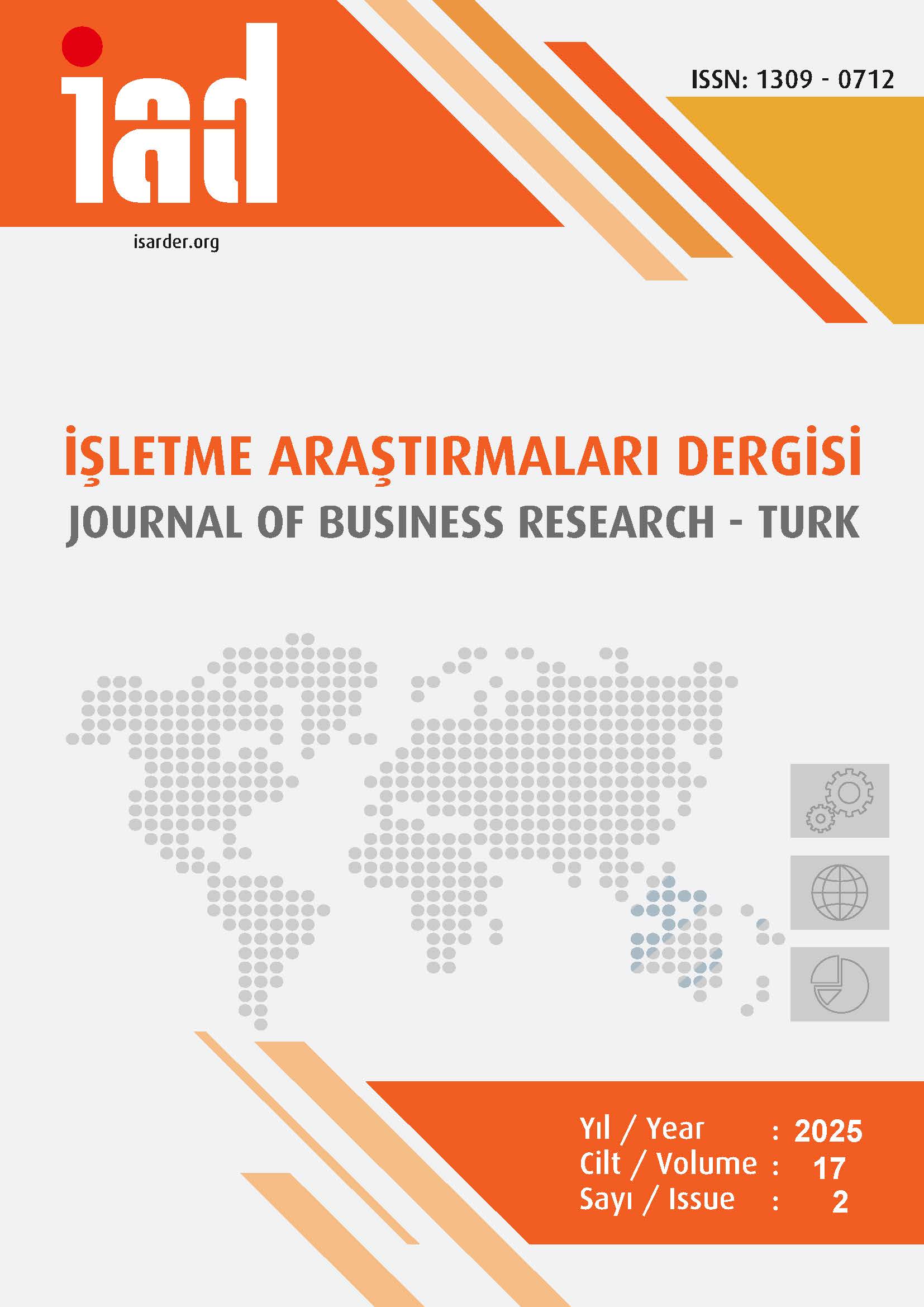Perceptions of Nepotism According to Demographic Characteristics of Employees in Family Businesses Operating As Family Businesses in the Food and Beverage Sector: Bursa Example
DOI:
https://doi.org/10.20491/isarder.2025.2027Keywords:
Family businesses, NepotismAbstract
Purpose – A family business is a type of business established by one or more of the family members for the purpose of continuity and profit of the business. While family businesses have advantages due to their prevalence and functions, they also have disadvantages for the same reasons. In this sense, one of the biggest obstacles to sustainability is due to the inability of institutionalization to be done at the right time and in the right way, while another obstacle is observed as nepotism. In family businesses, problems such as intertwining of work and family relationships may arise as a result of family members being held primarily in senior positions. Nepotism is the appointment of people to duty only through blood ties or closeness and providing privileges without considering their knowledge, skills and abilities while providing employment. The purpose of this research is to find out the perceptions and attitudes of employees in the food and beverage sector that are run as family business, in relation with their demographical characteristics. The motivation of the research is that there is a very limited number of studies as a result of the literature review in addition to the fact that the perception of nepotism may differ according to the demographic characteristics of individuals such as age, gender and education. Design/methodology/approach – Within the scope of the research, a questionnaire form consisting of demographic questions and the Nepotism Scale with 14 items, which is developed by Abdalla, Maghrabi and Al-Dabbagh (1994) was formed and sent to the participants by hand and via e-mail. 231 participants responded to the questionnaire forms and the collected data were analyzed in the SPSS 26.0 package program. Findings – The findings show that there is a statistically significant difference between the promotion dimension and educational characteristics (p <0,05), while there is no statistically significant difference between age and gender characteristics and both dimensions (promotion and reward/punishment) (p >0,05). Discussion – In this context, it can be understood that the participants feel nepotism regardless of their gender and age, however, it can also be said that this perception also differs as the level of education differs.
Downloads
Published
How to Cite
Issue
Section
License

This work is licensed under a Creative Commons Attribution-NoDerivatives 4.0 International License.





